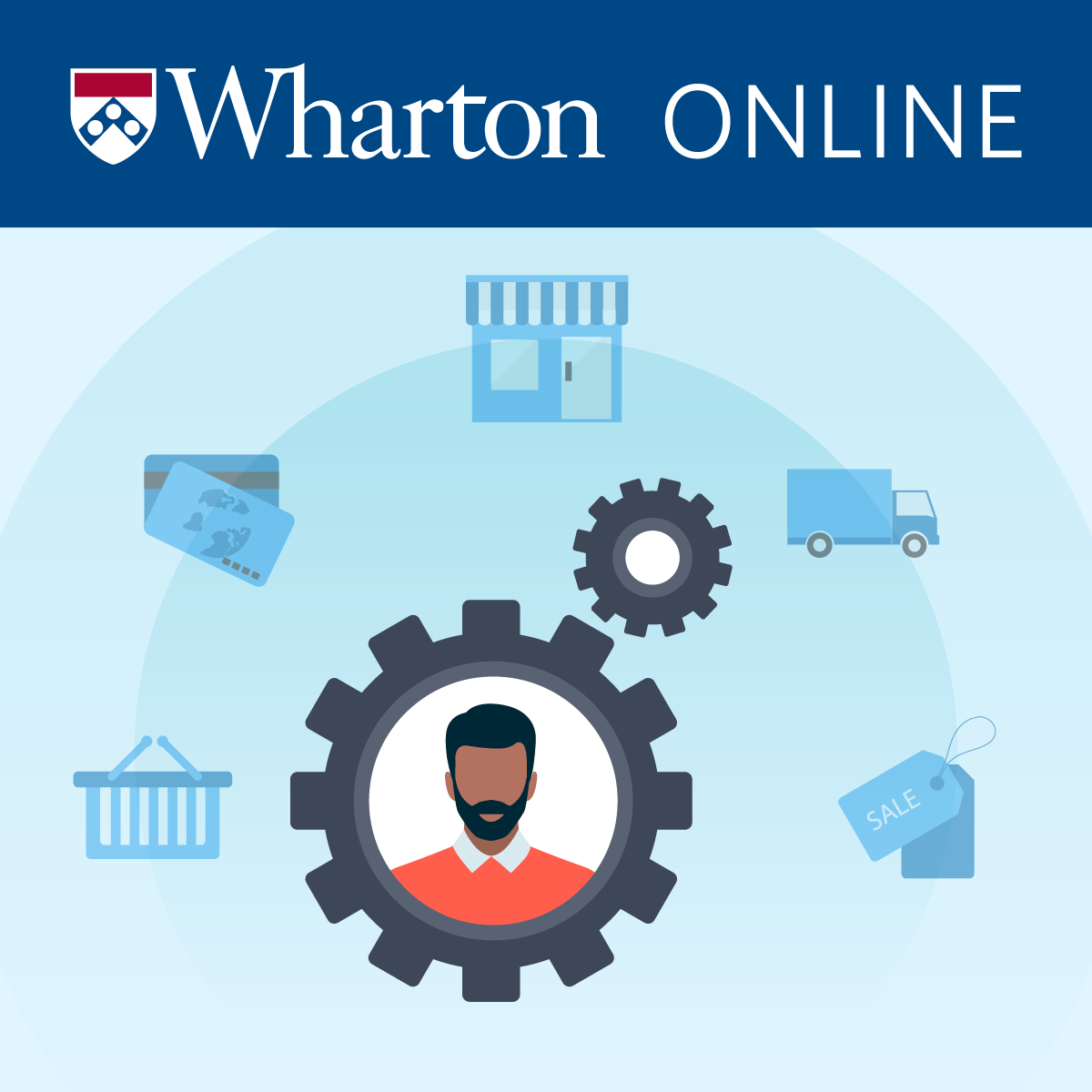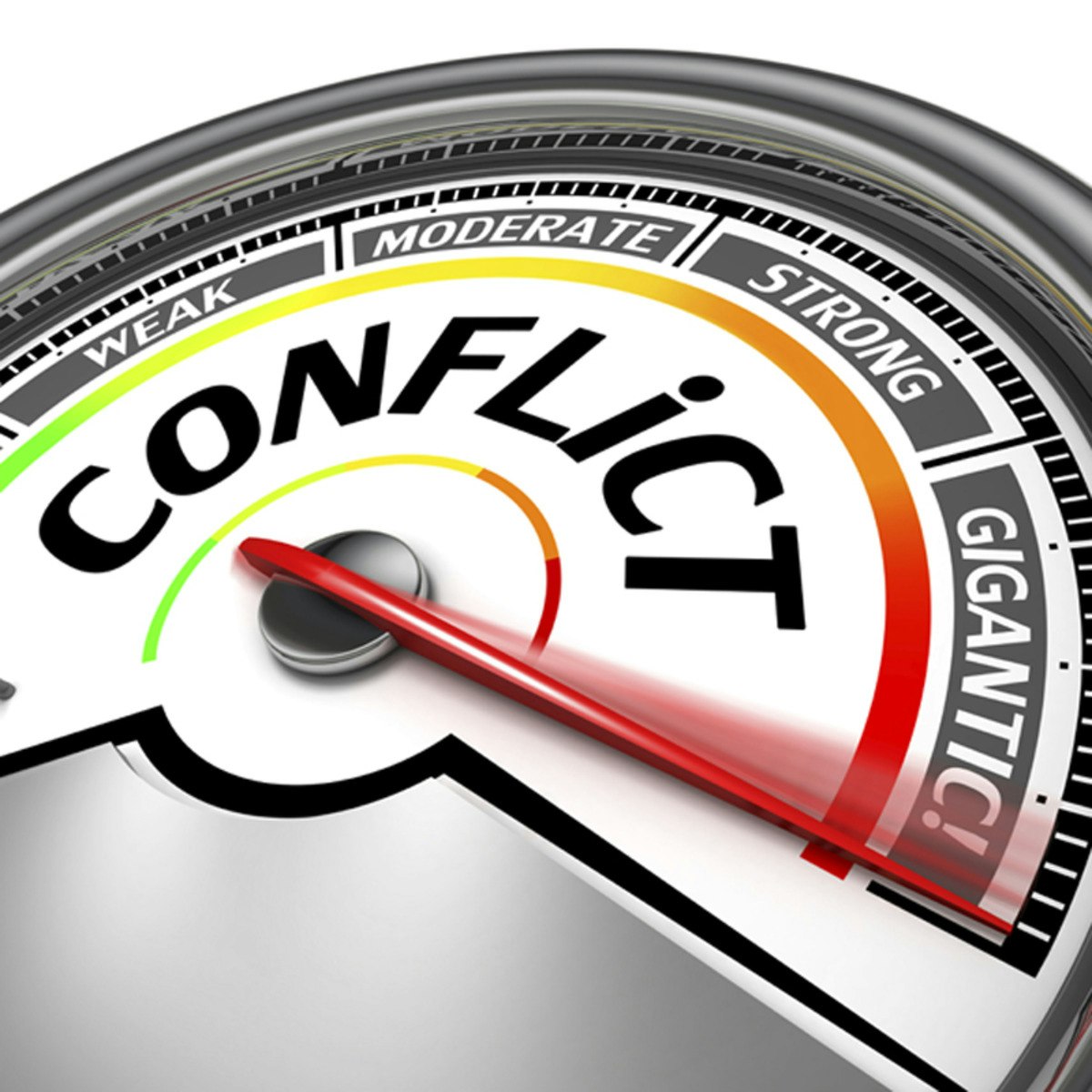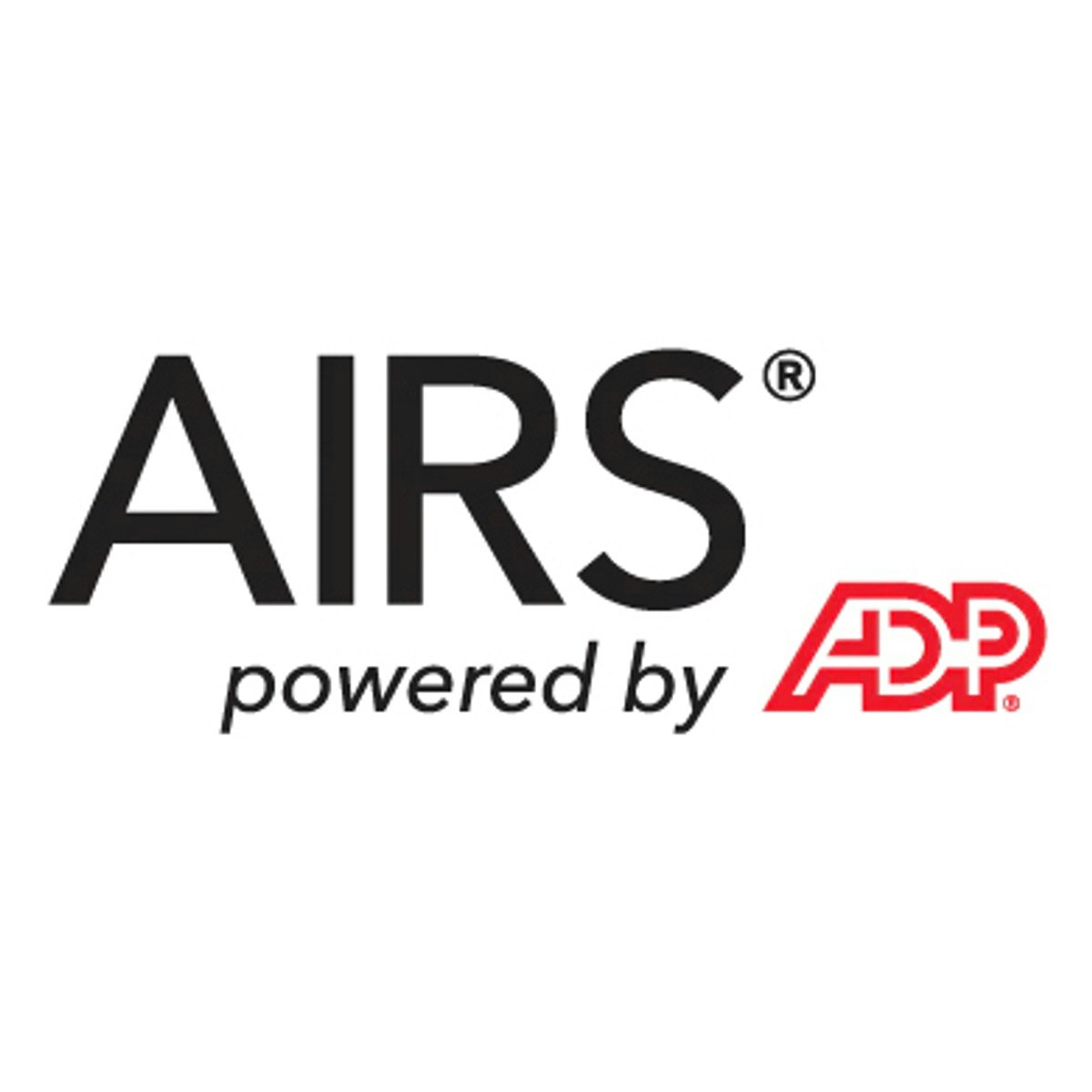Labor Relations Manager
Navigating the World of Work: A Comprehensive Guide to Becoming a Labor Relations Manager
A Labor Relations Manager is a crucial human resources professional responsible for cultivating and maintaining the relationship between an organization's management and its employees, especially in unionized environments. This role involves a delicate balance of advocating for fair labor practices while ensuring the organization operates effectively and in compliance with all relevant laws and agreements. Essentially, these managers act as a bridge, fostering communication and resolving issues to create a productive and equitable workplace.
Working as a Labor Relations Manager can be both challenging and rewarding. One of the most engaging aspects is the dynamic nature of negotiations, where managers use their skills to reach collective bargaining agreements that address wages, benefits, and working conditions, striving for outcomes that satisfy both employee needs and organizational goals. Furthermore, the role often involves intricate problem-solving, such as investigating and resolving employee grievances, which requires a keen understanding of human behavior and legal frameworks. The strategic advisory component, guiding senior management on labor practices and compliance, also offers a significant opportunity to influence organizational policy and culture.
Introduction to Labor Relations Management
This section delves into the foundational aspects of labor relations management, providing a clear understanding of its scope, historical context, and the types of organizations that rely on these professionals. Understanding these core elements is essential for anyone considering a career in this field or seeking to grasp its significance in the modern workplace.
Defining the Role and Scope
A Labor Relations Manager is primarily tasked with overseeing and managing the relationship between an employer and its workforce, particularly when employees are represented by a labor union. Their responsibilities are multifaceted, encompassing the negotiation of collective bargaining agreements, the administration of these contracts, and the resolution of disputes that may arise between employees and management. This often involves interpreting complex contractual language and ensuring that both parties adhere to the agreed-upon terms.
The scope of their work extends to ensuring compliance with a myriad of labor laws and regulations at federal, state, and sometimes local levels. They are instrumental in developing and implementing company policies related to employment, discipline, and grievance procedures. Furthermore, Labor Relations Managers often act as advisors to senior leadership, providing strategic guidance on labor-related matters to foster a positive and productive work environment.
Ultimately, the goal is to create a stable and fair workplace. This involves not only addressing conflicts as they arise but also proactively working to prevent them by fostering open communication and mutual understanding between the organization and its employees. Their work directly impacts employee morale, productivity, and the overall legal and ethical standing of the company.
A Look Back: The Evolution of Labor Relations
The field of labor relations has a rich and often turbulent history, shaped by societal shifts, economic transformations, and legal battles. Understanding this evolution provides crucial context for the modern Labor Relations Manager. The origins of the labor movement in the United States, for instance, can be traced back to the late colonial period, with the first recorded strike occurring in 1768 by New York journeymen tailors. The formation of early trade unions, like the Federal Society of Journeymen Cordwainers in 1794, marked the beginnings of organized efforts by workers to protect their common interests.
The 19th and early 20th centuries saw significant developments, including the rise of national unions like the Knights of Labor, formed in 1869, and the American Federation of Labor (AFL). These periods were characterized by struggles for better wages, reasonable working hours, and safer working conditions. Key events, such as the Lowell Mill women's strikes in the 1830s, the Homestead Strike of 1892, and the Triangle Shirtwaist Factory fire in 1911, highlighted the often-precarious conditions faced by workers and fueled the demand for reform. These events, and many others, underscore the long fight for worker protections and the establishment of collective bargaining rights.
Landmark legislation, particularly during the New Deal era, profoundly shaped the landscape. The National Labor Relations Act (NLRA) of 1935, also known as the Wagner Act, was a cornerstone, guaranteeing private-sector employees the right to organize, to bargain collectively through representatives of their own choosing, and to engage in concerted activities for the purpose of collective bargaining or other mutual aid or protection. Subsequent legislation, like the Taft-Hartley Act of 1947, introduced modifications and regulations on union activities. The U.S. Department of Labor, established in 1913, has also played a vital role in fostering, promoting, and developing the welfare of wage earners, job seekers, and retirees.
The nature of labor relations continues to evolve with globalization, technological advancements, and shifts in economic structures. While union membership has seen declines in some sectors since its peak, the fundamental principles of ensuring fair labor practices and managing employee-employer relationships remain as critical as ever.
For those interested in the historical underpinnings and legal framework, exploring resources from institutions like the National Labor Relations Board (NLRB) can provide deeper insights.
Where Labor Relations Managers Work: Key Industries and Sectors
Labor Relations Managers are employed across a diverse range of industries and sectors, particularly those with a significant union presence or complex employee relations needs. Manufacturing has traditionally been a major employer, given its long history of unionization. Similarly, the transportation sector, including airlines, trucking, and public transit, often relies heavily on these professionals to manage collective bargaining agreements and employee relations.
The public sector is another significant area, with government agencies at the federal, state, and local levels employing Labor Relations Managers to navigate relationships with public employee unions. Healthcare and education are also prominent fields, with hospitals, school districts, and universities frequently having unionized staff, requiring skilled managers to handle negotiations and contract administration. Other industries include construction, utilities, and even some segments of the retail and hospitality sectors, especially in regions with higher union density.
The demand for Labor Relations Specialists is often tied to the prevalence of labor unions and the overall size of the workforce in specific industries. Even in non-unionized environments, larger organizations may employ specialists in employee relations, a closely related field, to handle grievances, ensure fair treatment, and maintain positive workplace dynamics. The skills of a Labor Relations Manager are transferable, and opportunities can also be found in consulting firms that advise companies on labor strategies.
Core Responsibilities of a Labor Relations Manager
The daily work of a Labor Relations Manager is centered around fostering and maintaining a stable and fair relationship between an organization and its employees, particularly when a union is involved. This involves a specific set of key duties that are vital to the smooth operation of the workplace and adherence to legal and contractual obligations.
Negotiating and Administering Collective Bargaining Agreements
A primary responsibility of a Labor Relations Manager is the negotiation of collective bargaining agreements (CBAs). This intricate process involves representing management at the bargaining table with union representatives to discuss and agree upon terms and conditions of employment. These terms typically cover wages, benefits, working hours, grievance procedures, and other work-related rules. The manager must prepare thoroughly for negotiations, which includes researching industry standards, economic data, and the specific needs and concerns of both the organization and its employees.
Once an agreement is reached, the Labor Relations Manager is then responsible for its administration and interpretation. This means ensuring that all parties understand and comply with the terms of the CBA. They might provide guidance to other managers on how to apply specific clauses of the contract in day-to-day operations. This can involve clarifying language, advising on disciplinary actions to ensure they align with the CBA, or explaining changes in policy that are dictated by the agreement.
The role requires a strategic approach, balancing the needs of the employees with the objectives of the organization to achieve a fair and workable contract. Effective contract administration is crucial for preventing misunderstandings and disputes down the line, contributing to a more stable labor environment. This often involves ongoing communication and collaboration with union officials even outside of formal negotiation periods.
Individuals looking to build a strong foundation in the principles of managing human capital, which is essential for effective negotiation and agreement administration, may find relevant insights in online courses. These courses can cover aspects of workforce management and organizational practices that underpin successful labor relations.
Books on human resource management and compensation can also offer valuable frameworks for understanding the components of collective bargaining agreements.
Resolving Workplace Disputes and Employee Grievances
A significant portion of a Labor Relations Manager's time is dedicated to resolving workplace disputes and managing employee grievances. Grievances are formal complaints raised by employees or the union, typically alleging a violation of the collective bargaining agreement, company policy, or labor laws. The manager plays a critical role in the grievance process, which usually involves several steps, potentially escalating to arbitration if an internal resolution cannot be found.
This responsibility requires strong investigative skills. The manager must gather facts, interview relevant parties, and analyze the situation objectively to determine the validity of the grievance. They then work with both management and union representatives to find a mutually acceptable solution. This often involves mediation and negotiation to reach a compromise that addresses the employee's concerns while upholding the terms of the CBA and company policies.
Beyond formal grievances, Labor Relations Managers also handle other workplace conflicts that may arise. Their ability to mediate disputes effectively is crucial for maintaining a harmonious work environment and preventing minor issues from escalating into more significant problems. This proactive approach to conflict resolution can save the organization time and resources, and contribute to better employee morale.
Developing skills in conflict resolution and mediation is paramount for success in this area. Online courses focusing on conflict types and assessment can provide valuable strategies.
Understanding the dynamics of employee relations is also key.
Ensuring Compliance with Federal and State Labor Laws
Ensuring the organization's adherence to all applicable federal, state, and local labor laws is a cornerstone of the Labor Relations Manager's responsibilities. This involves staying current with a complex and ever-evolving legal landscape that governs aspects of employment such as wages, working hours, workplace safety, equal employment opportunity, and collective bargaining rights.
Key federal laws in the United States that Labor Relations Managers must be intimately familiar with include the National Labor Relations Act (NLRA), which protects workers' rights to organize and bargain collectively; the Fair Labor Standards Act (FLSA), which establishes minimum wage, overtime pay, recordkeeping, and child labor standards; and laws enforced by the Equal Employment Opportunity Commission (EEOC) that prohibit discrimination based on race, color, religion, sex, national origin, age, and disability. Additionally, the Occupational Safety and Health Act (OSHA) mandates safe working conditions.
Beyond federal mandates, Labor Relations Managers must also navigate state-specific labor laws, which can sometimes offer greater protections or have different requirements than federal law. This requires meticulous attention to detail and a commitment to ongoing learning to ensure policies and practices are consistently compliant. They may develop and implement internal policies and handbooks, conduct audits, and train other managers and employees on legal requirements to minimize risk and foster a lawful workplace.
Gaining a thorough understanding of employment law is critical. While formal legal degrees are beneficial, specialized courses and certifications can also provide essential knowledge in this area.
Familiarity with organizations like the National Labor Relations Board is also beneficial.
Educational Pathways to Becoming a Labor Relations Manager
Embarking on a career as a Labor Relations Manager typically involves a combination of formal education and practical experience. While paths may vary, certain academic backgrounds and experiential learning opportunities are particularly valuable in preparing individuals for the complexities of this role.
Relevant Undergraduate Degrees
A bachelor's degree is generally the minimum educational requirement for entering the field of labor relations. Several fields of study can provide a strong foundation. Degrees in Human Resources are a direct and common route, as coursework often covers employment law, compensation, organizational behavior, and conflict resolution – all central to labor relations.
Another highly relevant major is Labor Studies or Industrial Relations, if available. These programs specifically focus on the history of labor movements, collective bargaining, labor law, and workplace dynamics from both employee and employer perspectives. A degree in Business Administration can also be suitable, particularly if it includes a concentration in human resources or management. Coursework in business, accounting, and economics provides a good understanding of the organizational context in which labor relations operate.
Beyond these direct paths, degrees in fields like political science, sociology, psychology, or even pre-law can offer transferable skills in critical thinking, analysis, communication, and understanding social systems, which are all valuable in labor relations. Regardless of the specific major, aspiring Labor Relations Managers should seek out courses that emphasize negotiation, mediation, law, ethics, research methods, and statistics.
Online courses can be an excellent way to supplement a degree program or to gain foundational knowledge if your primary degree is in a less directly related field. For instance, courses that introduce human resources principles can be highly beneficial.
These introductory courses help build a base understanding of HR functions, which are closely intertwined with labor relations.
Advanced Certifications and Further Education
While a bachelor's degree is often the entry point, advanced certifications and further education can significantly enhance a Labor Relations Manager's credentials and expertise. Certifications from reputable organizations like the Society for Human Resource Management (SHRM), such as the SHRM Certified Professional (SHRM-CP) or SHRM Senior Certified Professional (SHRM-SCP), are highly valued in the broader HR field and demonstrate a comprehensive understanding of HR principles, including employee and labor relations.
Some colleges and universities offer specialized certificate programs in labor relations or conflict resolution. These programs often delve deeper into topics like mediation, arbitration, collective bargaining strategies, and labor law, providing focused, practical skills. For individuals seeking to deepen their academic knowledge, a master's degree in Human Resources, Labor/Industrial Relations, or an MBA with a concentration in HR can be beneficial, particularly for those aspiring to senior leadership roles. A law degree (Juris Doctor or JD), especially with a focus on labor and employment law, is also a strong asset and can open doors to more specialized or legally focused roles within labor relations.
Continuous professional development is crucial in this field due to the evolving nature of labor laws, economic conditions, and workplace trends. Attending workshops, conferences, and webinars, as well as staying informed through industry publications, helps managers stay current and effective. Online platforms offer a wealth of courses for specialized skill development, such as those focused on specific HR practices or advanced negotiation techniques.
Consider courses that offer a capstone experience to apply learned principles.
For those looking to delve into the broader landscape of HR skills, comprehensive programs can be beneficial.
Reading widely on human resources management is also recommended to gain diverse perspectives.
The Value of Internships and Apprenticeships
Practical experience is invaluable in the field of labor relations, and internships or apprenticeships offer an excellent pathway to gain this firsthand exposure. These opportunities allow aspiring professionals to apply classroom knowledge in real-world settings, observe experienced practitioners, and begin building a professional network. Internships can be found in HR departments of various organizations, labor unions, government agencies (like the National Labor Relations Board), or law firms specializing in labor law.
During an internship, individuals might assist with research for contract negotiations, help in the preparation of grievance files, observe mediation sessions, or contribute to the development of HR policies. This hands-on work provides a much deeper understanding of the day-to-day realities and challenges of the profession than academic study alone. It also helps in developing crucial soft skills like communication, problem-solving, and teamwork in a professional context.
Apprenticeships, though perhaps less common in the direct path to a management role, can exist in related skilled trades or within union structures themselves, providing a ground-level understanding of worker perspectives and union operations. This can be highly beneficial for those who later move into management-side labor relations. Actively seeking out and excelling in such experiential learning opportunities can significantly differentiate a candidate in the job market and accelerate their career progression.
Even for those already in the workforce looking to pivot or enhance their skills, projects and shorter-term experiential learning can be beneficial. Some online platforms offer project-based courses where you can apply new skills, such as creating profiles for job seeking, which, while not directly labor relations, hones skills in presenting professional qualifications.
Gaining experience in talent acquisition and onboarding can also provide a broader HR context that is useful in labor relations.
Essential Skills for Effective Labor Relations Management
Success as a Labor Relations Manager hinges on a unique blend of hard and soft skills. Beyond academic qualifications, certain competencies are critical for navigating the complexities of employee-employer relationships, legal frameworks, and high-stakes negotiations. Developing these skills is an ongoing process, essential for both new entrants and seasoned professionals.
Mastering Conflict Resolution and Mediation
At the heart of labor relations lies the ability to manage and resolve conflict effectively. Labor Relations Managers are frequently called upon to mediate disputes between employees and management, or to navigate contentious issues during collective bargaining. This requires exceptional interpersonal skills, including active listening, empathy, and the ability to understand different perspectives, even when they are diametrically opposed.
Mediation techniques involve facilitating communication between conflicting parties, helping them identify common ground, and guiding them towards a mutually acceptable resolution. This is distinct from arbitration, where a third party imposes a decision; effective mediation empowers the parties to craft their own solutions. Strong problem-solving skills are also paramount, enabling managers to analyze the root causes of disputes and develop creative solutions.
Maintaining composure under pressure and demonstrating impartiality are crucial for building trust and credibility with all stakeholders. The ability to de-escalate tense situations and foster a constructive dialogue is a hallmark of an effective Labor Relations Manager. These skills are not only used in formal grievance procedures but also in day-to-day interactions to prevent minor disagreements from escalating.
Online courses focusing on negotiation, conflict management, and fostering positive work environments can significantly enhance these abilities.
Books on teamwork and leadership also offer valuable insights into managing interpersonal dynamics.
Analytical Skills for Interpreting Labor Laws
A deep understanding and the ability to accurately interpret labor laws and collective bargaining agreements are fundamental to the role of a Labor Relations Manager. This requires strong analytical skills to dissect complex legal texts, identify relevant provisions, and apply them to specific workplace situations. Managers must stay abreast of changes in legislation and case law at federal, state, and local levels, as non-compliance can lead to significant legal and financial repercussions for the organization.
Analytical abilities are also crucial when preparing for negotiations, where managers must analyze wage data, benefits packages, industry trends, and the financial health of the organization to develop informed bargaining positions. During grievance procedures, they need to analyze evidence, witness testimonies, and contractual language to make sound judgments and recommendations. This often involves careful attention to detail and the ability to synthesize information from various sources to form a coherent understanding of an issue.
Furthermore, Labor Relations Managers often need to analyze workforce data and employee relations patterns to identify potential areas of concern and proactively address them. This might involve looking at trends in grievances, disciplinary actions, or employee feedback to inform policy development or training initiatives. The ability to think critically and make data-informed decisions is increasingly important in this field.
Courses that touch upon human resources analytics or legal aspects of HR can help hone these skills.
Specialized legal knowledge is a significant asset.
Communication Strategies for Stakeholder Engagement
Effective communication is paramount for a Labor Relations Manager, who must engage with a diverse range of stakeholders including employees, union representatives, senior management, legal counsel, and sometimes external bodies like government agencies or arbitrators. This requires the ability to tailor communication style and content to different audiences, conveying complex information clearly and persuasively, both verbally and in writing.
Strong presentation skills are needed for conducting training sessions for managers and employees on labor policies or contract provisions. During negotiations and dispute resolution, clear, concise, and respectful communication is essential to building trust and fostering productive dialogue. This includes active listening to understand concerns and perspectives, as well as the ability to articulate the organization's position effectively.
Written communication skills are vital for drafting contract language, policy documents, grievance responses, and reports. Maintaining accurate and thorough documentation is also a key aspect of the role. Beyond formal communication, fostering open and transparent communication channels within the organization can help prevent misunderstandings and build a more positive labor relations climate.
Courses that focus on communication within diverse workplaces or on specific HR communication tasks can be highly beneficial.
Books on influential communication and leadership provide broader strategies for effective engagement.
Career Progression and Advancement in Labor Relations
The field of labor relations offers a structured career path with opportunities for growth and specialization. Individuals typically start in specialist roles and can advance to senior management and leadership positions with experience and proven expertise. Understanding this progression can help aspiring professionals plan their careers effectively.
Entry-Level Roles: The Labor Relations Specialist
Most careers in labor relations begin with an entry-level position, commonly titled Labor Relations Specialist or Employee Relations Specialist. In this role, individuals work under the guidance of more experienced managers, providing support in various labor relations activities. Responsibilities often include assisting with the administration of collective bargaining agreements, researching labor laws and industry practices, and helping to investigate and process employee grievances.
Labor Relations Specialists may also be involved in preparing materials for contract negotiations, maintaining records related to labor relations matters, and assisting with the development and delivery of training programs for employees and supervisors on topics like contract interpretation or workplace policies. This role provides a critical learning ground for understanding the practical application of labor laws, the nuances of contract language, and the dynamics of union-management relationships.
A bachelor's degree in human resources, labor relations, or a related field is typically required for these positions. Strong analytical, communication, and interpersonal skills are essential from the outset. Gaining experience in tasks like gathering information, writing reports, and interacting with employees and union representatives builds a solid foundation for future advancement.
For those starting out, it's beneficial to understand the breadth of human resources.
Building a strong resume is key at this stage.
Mid-Career Paths: The Senior Labor Relations Manager
With several years of experience and a demonstrated ability to handle complex labor relations issues, specialists can advance to roles such as Labor Relations Manager or Senior Labor Relations Manager. At this level, individuals take on greater responsibility and autonomy. They may lead contract negotiations, manage more complex and sensitive grievance cases, and play a more significant role in developing labor relations strategies for the organization.
Senior Labor Relations Managers are often the primary point of contact for union representatives and provide expert advice to senior management on labor matters. They may oversee a team of specialists, mentor junior staff, and be responsible for ensuring the consistent application of labor policies and agreements across different departments or locations. Strong leadership, strategic thinking, and advanced negotiation and conflict resolution skills are critical at this stage.
Continuous professional development, including staying updated on legal changes and industry best practices, remains important. Some professionals may pursue advanced degrees or certifications to further enhance their expertise and career prospects. Experience in diverse industries or with different unions can also broaden their skill set and make them more versatile. This stage often involves a deeper dive into personnel management and performance oversight.
Courses focusing on performance management and compensation become increasingly relevant.
Key books in this area focus on managing teams and organizational effectiveness.
Leadership Roles: Director or VP of Labor Relations
At the highest levels of the career ladder are leadership roles such as Director of Labor Relations, Vice President of Labor Relations, or Vice President of Human Resources with a strong labor relations focus. These positions involve significant strategic responsibility, shaping the overall labor relations philosophy and policies of the entire organization. Individuals in these roles typically report to top executive leadership and play a key part in major organizational decisions that impact the workforce.
Responsibilities include overseeing all labor relations functions, leading major contract negotiations for the entire company or multiple bargaining units, and representing the organization in high-stakes arbitrations or legal proceedings. They are responsible for fostering long-term relationships with union leadership, anticipating future labor trends, and developing strategies to maintain a stable and productive labor environment that aligns with the company's overall business objectives.
Extensive experience (often 10+ years), a deep understanding of labor law and practice, exceptional leadership and strategic thinking abilities, and a proven track record of successful negotiations and dispute resolution are essential for these roles. An advanced degree, such as an MBA or a JD, is often preferred or required. These leaders are not just managers but key architects of the organization's approach to its workforce.
Leadership development courses and strategic HR management programs can be beneficial for those aspiring to these top-tier positions.
Understanding high-level organizational strategy is crucial.
Labor Relations Manager in the Digital Age
The landscape of labor relations is continually evolving, and the digital age brings both new challenges and innovative tools for managers in this field. Technological advancements are reshaping how employees connect, how organizations operate, and how labor laws are applied and monitored, requiring Labor Relations Managers to adapt and acquire new competencies.
Navigating Union Negotiations in the Era of Remote Work
The widespread adoption of remote and hybrid work models has introduced new complexities to union negotiations and the administration of collective bargaining agreements. Labor Relations Managers must now address issues that were less prevalent before, such as defining the "workplace" for remote employees, ensuring equitable access to opportunities and resources regardless of location, and managing health and safety in home office environments. Collective bargaining may need to cover topics like stipends for home office expenses, data security for remote work, and protocols for digital communication and monitoring.
Organizing and communicating with a dispersed workforce can also be challenging for unions, and Labor Relations Managers may find themselves negotiating the terms of digital access for union representatives to reach employees. The use of technology for virtual negotiations has become more common, requiring proficiency in digital collaboration tools and strategies for building rapport and trust in a non-physical setting. While technology can facilitate faster communication, it also raises questions about expectations for availability and the right to disconnect, which are becoming increasingly important bargaining points.
Unions are actively working to ensure that remote work enhances rather than threatens labor rights and working conditions, emphasizing that remote work should be voluntary and negotiated. Labor Relations Managers need to be prepared to discuss these evolving expectations and find common ground that supports both operational needs and employee well-being in a distributed work environment.
Understanding these new dynamics is crucial, and courses that address modern workplace challenges can offer insights.
Books on leading change can provide frameworks for adapting to these new work realities.
Leveraging AI for Labor Compliance and Monitoring
Artificial intelligence (AI) is beginning to make its mark on labor relations, particularly in the realm of compliance and monitoring. AI-powered tools can assist organizations in tracking adherence to complex labor laws and regulations, such as those related to working hours, overtime pay, and leave entitlements. These systems can analyze large datasets to identify potential compliance risks or patterns of non-adherence, allowing Labor Relations Managers to address issues proactively.
For instance, AI might be used to monitor scheduling practices to prevent violations of rest period requirements or to analyze payroll data for discrepancies. Some AI tools are also being developed to assist in drafting legal documents or comparing proposed CBA terms against databases of existing agreements, potentially increasing efficiency. However, the use of AI in monitoring employees also raises significant ethical and privacy concerns that must be carefully managed, and unions are increasingly seeking to bargain over the implementation and oversight of such technologies.
Labor Relations Managers need to understand both the capabilities and limitations of AI tools, ensuring their use is transparent, fair, and does not infringe upon employee rights. The focus is shifting towards ensuring human oversight in algorithmic decision-making, particularly in areas like hiring, performance evaluation, and disciplinary actions, to prevent bias and ensure accountability. As AI continues to evolve, its role in labor compliance will likely grow, requiring ongoing learning and adaptation from professionals in the field.
While specific AI courses for labor relations are emerging, a general understanding of AI's impact on business can be gained from broader technology and management courses. Familiarity with data analytics for HR can also be beneficial.
Utilizing Digital Platforms for Enhanced Employee Engagement
Digital platforms are increasingly used to enhance employee engagement, communication, and even aspects of labor relations. These platforms can range from internal social networks and collaboration tools to sophisticated human resources information systems (HRIS) that manage employee data and facilitate communication. In a labor relations context, these tools can be used to disseminate information about collective bargaining agreements, company policies, and employee rights and responsibilities.
For organizations with unionized employees, digital platforms might be used to facilitate communication between management and union representatives, or even to conduct employee surveys (with appropriate safeguards and union agreement) to gather feedback on workplace issues. They can also support training initiatives related to labor relations topics. However, the use of such platforms must be managed carefully to ensure they do not inadvertently become tools for unfair labor practices or create new avenues for disputes.
Effective Labor Relations Managers will explore how these digital tools can support positive employee relations and transparent communication while respecting collective bargaining frameworks and employee privacy. The goal is to use technology to foster a more informed and connected workforce, which can contribute to a more harmonious labor environment. As with AI, transparency and collaboration with union partners are key when implementing new digital engagement strategies in a unionized setting.
Courses on employee engagement and creating positive workplace cultures can provide relevant strategies, even if not specifically focused on unionized digital environments.
Understanding what motivates employees and builds strong workplace cultures is a timeless skill, adaptable to digital contexts.
Ethical Challenges in Labor Relations Management
Labor Relations Managers frequently encounter complex ethical dilemmas that require careful consideration and principled decision-making. The nature of their role, acting as an intermediary between employer interests and employee rights, inherently presents situations where ethical responsibilities can be tested. Navigating these challenges with integrity is crucial for maintaining trust and fostering a just workplace.
The Tightrope Walk: Balancing Corporate Interests and Worker Rights
One of the most persistent ethical challenges for a Labor Relations Manager is balancing the financial and operational interests of the corporation with the rights and well-being of its workers. During contract negotiations, for example, management may push for cost-saving measures that could negatively impact employee wages, benefits, or job security. The manager must negotiate in good faith while representing the employer's objectives, but also ensure that proposals are fair, legal, and do not unduly compromise fundamental worker rights or the terms of the existing collective bargaining agreement.
This tension can also arise in decisions regarding discipline, layoffs, or responses to economic downturns. The manager must advise the organization on actions that are not only legally defensible but also ethically sound. This involves considering the potential human impact of decisions and advocating for approaches that, where possible, mitigate harm to employees while still addressing business necessities. It requires a strong moral compass and the courage to speak up when corporate pressures might lead to ethically questionable outcomes.
The International Labour Organization (ILO) promotes social justice and internationally recognized human and labor rights, and its principles can offer a guiding framework for ethical decision-making in this context. Striving for outcomes that are both economically viable and socially responsible is a key aspect of ethical labor relations management.
Courses that touch upon organizational ethics and decision-making can provide frameworks for navigating these complex situations.
Understanding the broader societal impact of labor practices is also important.
Navigating the Labyrinth of Sensitive Employee Data
Labor Relations Managers often have access to a significant amount of sensitive employee data. This can include personal information, medical records (in the context of leave or accommodation requests), disciplinary records, grievance details, and information related to union membership or activities. The ethical handling of this information is paramount. This means ensuring data privacy, maintaining confidentiality, and using the information only for legitimate and specified purposes.
There are legal obligations regarding data protection, but ethical responsibilities often go further. Managers must ensure that data is accurate, stored securely, and not used in a discriminatory manner or to retaliate against employees for exercising their rights. For example, information about an employee's participation in union activities should not influence decisions about promotions or assignments, unless explicitly relevant and permissible under law and the CBA.
The increasing use of digital HR systems and AI-powered monitoring tools adds another layer of complexity to data privacy. Labor Relations Managers must be vigilant about how these technologies collect, use, and store employee data, ensuring that these processes are transparent, compliant with regulations, and respectful of employee privacy rights. Breaches of confidentiality or misuse of sensitive data can severely damage trust and lead to legal consequences.
While not specific to labor relations, courses on information security or data privacy can offer valuable general principles applicable to handling sensitive employee information. Searching for courses on employee data privacy on platforms like OpenCourser could yield relevant options.
Confronting and Addressing Bias in Dispute Resolution
Ensuring fairness and impartiality in dispute resolution is a core ethical duty of a Labor Relations Manager. However, unconscious bias – whether based on personal characteristics, an individual's role in the company, or their union affiliation – can inadvertently influence investigations, decision-making, and the outcomes of grievance procedures. Actively working to identify and mitigate such biases is crucial for maintaining a just and equitable process.
This involves establishing clear, consistent, and transparent procedures for handling disputes and grievances. It means ensuring that all parties have an opportunity to be heard, that evidence is evaluated objectively, and that decisions are based on facts and the relevant terms of the collective bargaining agreement or company policy, rather than personal feelings or preconceived notions. Training for oneself and for other managers involved in these processes on recognizing and addressing unconscious bias can be very beneficial.
Furthermore, Labor Relations Managers should be attentive to systemic biases that might be embedded in policies or practices, which could lead to disproportionately negative outcomes for certain groups of employees. Advocating for changes to address such systemic issues is an important aspect of promoting a truly fair workplace. The goal is to create a dispute resolution system that is, and is perceived to be, fair by all employees.
Developing an inclusive mindset and understanding diversity, equity, and inclusion (DEI) principles are key to addressing bias effectively.
These skills are critical for ensuring fairness and equity in all aspects of labor relations.
Global Labor Relations Management Strategies
For organizations operating across borders, managing labor relations takes on an added layer of complexity. Labor laws, union landscapes, cultural norms, and economic conditions can vary dramatically from one country to another. Effective Global Labor Relations Managers must develop strategies that are both globally consistent in principle and locally adapted in practice.
A World of Difference: Comparative Labor Laws (e.g., EU vs. US)
Understanding the significant differences in labor law frameworks between major economic regions, such as the European Union (EU) and the United States (US), is fundamental for multinational corporations. In the US, employment is largely "at-will," meaning employers can terminate employees for any reason that isn't illegal (like discrimination), though collective bargaining agreements can modify this. Union density is higher in the public sector than in the private sector. US labor law, primarily the NLRA, governs union organizing and collective bargaining processes.
In contrast, many EU countries have stronger statutory protections for workers regarding job security, and termination often requires a justified cause. Works councils and sectoral bargaining are more common in some EU nations, and there's often a greater emphasis on social dialogue between employers, unions, and government bodies. The EU also has directives that set minimum standards across member states on issues like working time, paid leave, and information and consultation of workers. For instance, the EU Working Time Directive generally limits the workweek to 48 hours, including overtime, and mandates minimum paid annual leave, which contrasts with the US Fair Labor Standards Act that doesn't federally mandate paid leave.
These differences impact everything from hiring and firing practices to how collective bargaining is conducted and how employee representation is structured. A Global Labor Relations Manager must navigate these varying legal landscapes to ensure compliance and develop appropriate strategies for each region. For example, approaches to employee consultation during restructuring or layoffs will differ significantly between the US and many EU countries due to differing legal requirements for informing and consulting with employee representatives.
Managing Labor Disputes Across Borders
Managing labor disputes in a multinational context requires sensitivity to both legal and cultural differences. A dispute in one country might be handled very differently from a similar issue in another due to variations in labor laws, the power and approach of local unions, and accepted norms for conflict resolution. For instance, the process for resolving grievances, the legality of industrial actions like strikes, and the role of government labor agencies can vary widely.
A Global Labor Relations Manager needs to develop a framework for dispute resolution that allows for local adaptation while maintaining core company principles of fairness and legal compliance. This might involve training local HR and management teams on company-wide ethical standards and dispute resolution philosophies, but empowering them to apply these within the context of local laws and customs. Understanding the specific industrial relations climate of each country is crucial – what might be a standard negotiating tactic in one region could be seen as an aggressive or bad-faith approach in another.
Effective communication and coordination across different country operations are key. This ensures that lessons learned from disputes in one location can inform preventative strategies elsewhere, and that the company presents a consistent (though locally tailored) approach to labor relations globally. Utilizing local legal expertise is also indispensable when dealing with cross-border labor disputes to ensure full compliance with all applicable regulations.
General courses on conflict resolution are a good starting point, though specific cross-cultural negotiation training would be highly beneficial for this specialization.
The Role of International Labor Organizations (e.g., ILO)
International labor organizations, most notably the International Labour Organization (ILO), play a significant role in shaping global labor standards and influencing national labor laws and practices. The ILO, a specialized agency of the United Nations, brings together governments, employers, and worker representatives from its 187 member states to set labor standards, develop policies, and devise programs promoting decent work for all. Its core mission is to promote social justice and internationally recognized human and labor rights.
The ILO establishes International Labour Standards in the form of Conventions (legally binding international treaties that member states can ratify) and Recommendations (non-binding guidelines). These standards cover a wide range of labor issues, including freedom of association and the right to collective bargaining, the elimination of forced labor and child labor, and the elimination of discrimination in employment. Even if a country has not ratified a particular Convention, ILO standards can still exert influence on national policy and corporate behavior, particularly for multinational enterprises concerned with their global reputation and ethical sourcing.
Global Labor Relations Managers should be aware of ILO standards and how they might apply to their organization's operations worldwide. Adherence to these standards can be a key component of a company's corporate social responsibility strategy and can help mitigate risks associated with labor practices in different countries. The ILO also provides technical assistance to countries and engages in research, offering valuable resources for understanding global labor trends.
Understanding international frameworks can be supplemented by exploring resources provided directly by organizations like the ILO.
Frequently Asked Questions (FAQs) About Labor Relations Management
This section addresses some of the common questions individuals have when exploring a career as a Labor Relations Manager, providing concise answers to help clarify key aspects of the role and its requirements.
What qualifications are typically needed to become a Labor Relations Manager?
Typically, a bachelor's degree in human resources, labor studies, industrial relations, or business administration is required. Relevant experience in HR, particularly in handling employee relations or directly in a unionized environment, is often essential, with many manager roles requiring several years of experience. Strong knowledge of labor laws, negotiation skills, conflict resolution abilities, and excellent communication are also critical qualifications. Advanced degrees (like a Master's in HR or a JD) or professional certifications (like SHRM-CP/SCP) can be advantageous, especially for senior positions.
How does this role differ from a general HR Manager?
While both roles fall under the Human Resources umbrella, a Labor Relations Manager specializes in the relationship between management and employees represented by a labor union, and in managing collective bargaining processes. Their focus is heavily on contract negotiation, grievance administration, and ensuring compliance with labor laws specific to unionized environments. A general HR Manager, on the other hand, typically has a broader scope of responsibilities that might include recruitment, training, compensation and benefits administration, and performance management across the entire workforce, which may or may not be unionized. In smaller organizations, an HR Manager might handle some labor relations duties, but in larger or heavily unionized companies, Labor Relations is a distinct and specialized function.
What is the job outlook for Labor Relations Managers?
The U.S. Bureau of Labor Statistics (BLS) projects employment for labor relations specialists to show little or no change from 2022 to 2032. Despite this, about 6,100 openings for labor relations specialists are projected each year, on average, over the decade. Many of those openings are expected to result from the need to replace workers who transfer to different occupations or exit the labor force, such as to retire. The median annual wage for labor relations specialists was $89,980 in May 2023. Demand can be influenced by trends in unionization, changes in labor laws, and the overall economic climate. Industries such as healthcare, government, manufacturing, and transportation continue to require professionals skilled in managing labor relations.
Can I transition into this role from a legal background?
Yes, a legal background, particularly with a focus on employment or labor law, can be a very strong asset for transitioning into a Labor Relations Manager role. Lawyers often possess critical skills in contract interpretation, negotiation, dispute resolution, and understanding complex regulations – all of which are central to labor relations. Many individuals with law degrees (JDs) work in labor relations, either for companies, unions, or government agencies. Additional HR certifications or coursework in human resource management could further facilitate such a transition by providing a broader understanding of HR practices beyond the purely legal aspects.
What are some of the key industries that actively hire Labor Relations Managers?
Labor Relations Managers are in demand across various industries, especially those with a history of unionization or large, complex workforces. Key industries include manufacturing, transportation (airlines, railroads, trucking), healthcare (hospitals, nursing homes), education (school districts, universities), and government (federal, state, and local agencies). The construction and utilities industries also frequently employ labor relations professionals. Essentially, any sector where collective bargaining agreements are prevalent will have a need for skilled individuals to manage these relationships.
How is Artificial Intelligence (AI) impacting the future of labor relations?
AI is beginning to impact labor relations in several ways. It's being explored for tasks like analyzing labor market data, helping with compliance monitoring, and even assisting in drafting initial proposals for collective bargaining. Unions and employers are both looking at how AI might affect job duties, performance evaluations, and employment status, making AI itself a subject of negotiation. Concerns exist around job displacement due to automation, algorithmic bias in decision-making (e.g., hiring, discipline), and employee surveillance. Consequently, labor unions are increasingly advocating for transparency, human oversight, and collective bargaining over the deployment of AI in the workplace to protect worker rights and ensure that technological changes benefit, rather than displace or disadvantage, workers. The AFL-CIO, for example, emphasizes that working people must be included in the design, development, and implementation of AI.
The future will likely see Labor Relations Managers needing to be conversant with AI's capabilities and ethical implications, negotiating its use, and managing its impact on the workforce.
Becoming a Labor Relations Manager is a path that requires a dedicated focus on understanding the intricate dynamics between employers and employees, a commitment to upholding fair labor practices, and the continuous development of specialized skills. It is a career that places you at the intersection of law, business, and human relations, offering the opportunity to make a significant impact on the workplace. For those drawn to negotiation, problem-solving, and advocating for equitable environments, this field can be exceptionally fulfilling. As the world of work continues to evolve, particularly with technological advancements and changing economic landscapes, the role of the skilled Labor Relations Manager will remain crucial in fostering productive and fair employment relationships. Platforms like OpenCourser offer a vast array of resources, including online courses in Humanities and Business, that can help build the foundational knowledge and specialized skills needed to succeed in this challenging yet rewarding profession. Exploring the OpenCourser Learner's Guide can also provide valuable insights into making the most of online learning opportunities to achieve your career aspirations.
































